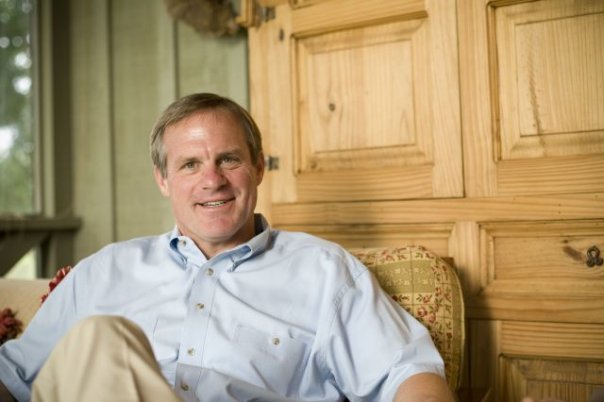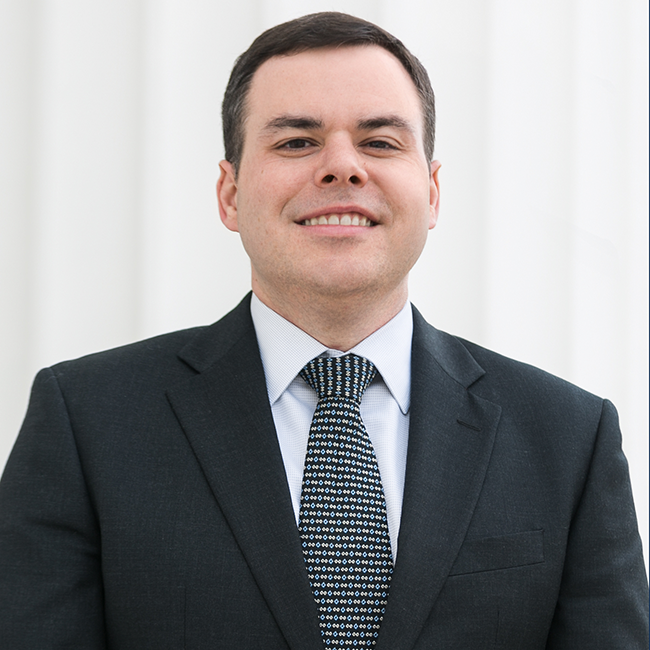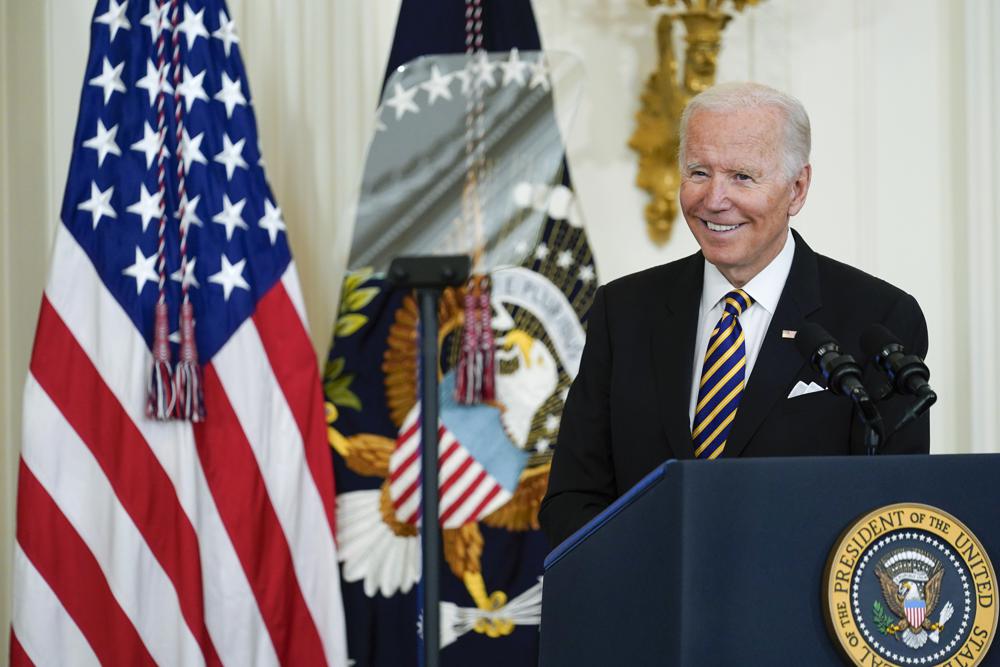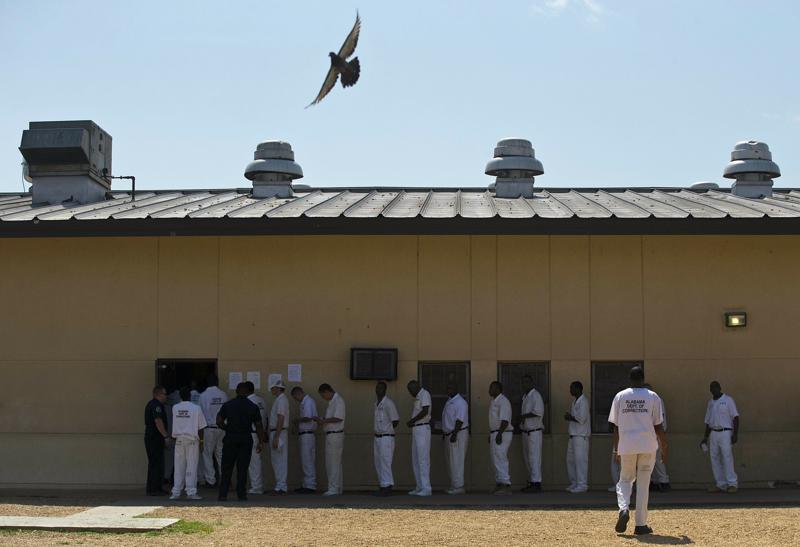Tim James announces Faith & Family Values Advisory Committee

Today, the Tim James Governor Campaign announced they will be creating a Faith and Family Values Advisory Committee. The committee believes that the foundation for any great society and culture is faith and family. According to a press release, a Tim James Administration will be driven by the values these institutions represent, and the plan will be for committee members to have input on policy decisions important to the state of Alabama. “God, country, family, freedom—these are our bedrock principles, and they are at the center of our movement,” said James. “The members of this advisory committee are committed to God’s Word and are examples of godly leadership in their communities. Now, more than ever, we need strong men and women of faith providing input on public policy to preserve the values that have made our state and nation great.” Rev. Dr. John Killian, Chairman of the Coalition states, “We are in a war for liberty, for cultural sanity and for religious freedom. The Alabama State Motto is Audemus Jura Nostra Defendere or ‘We dare defend our rights’ and the current war on our liberties demands that we rise to defend our rights. In the 2022 election, we must send forth warriors who will rise to the occasion and defend our state, fight for our liberties, and war for our values. Tim James is battle-tested, filled with conviction, and motivated by his Christian faith. Alabama needs Tim James as our Governor ‘for such a time as this.’ (Esther 4:14)” The campaign will continue to add to this team, but initial members of the state Faith and Family Values Advisory Committee are as follows: Rev. Dr. Keith Adams, Fultondale Rev. Dr. Terry B. Batton, Barbour County Rev. Greg Beasley, Tuscumbia Rev. Tom Caradine, Birmingham Rev. Rick Cargile, Fayette Rev. Robert Cobb, Gordo Rev. Scott Dawson, Birmingham Rev. C. Dwight Everett, Scottsboro Rev. Dr. C.O. Grinstead, Oxford Rev. Ray Hallman, Tuscaloosa Rev. Fritz P. Harter, Hueytown Rev. David Haynes, Jacksonville Rev. Louis Johnson, Troy Rev. Donald Jones, Jemison Rev. Dr. John Killian, Fayette Dr. J. Chris Lamb, Birmingham Rev. Maurice McCaney, Florence Rev. Adrian Nottonson, Fayette Rev. Austin Olive, Fayette Rev. Dr. Michael Rouse, Birmingham Rev. Robert D. Smith, Moulton Rev. Tim Smith, Crossville Rev. Bill Sullivan, Fayette Dr. Tim Thompson, Auburn Rev. Randal Trimm, Berry Rev. David Webb, Jackson
Lindy Blanchard calls for ending grocery tax

Lindy Blanchard, candidate for Governor of Alabama in the May 24th Republican primary, spoke Friday morning about her plans to eliminate the grocery tax, suspend and unwind the gas tax and put more money back in the pockets of hard-working Alabamians. Blanchard spoke to a crowd of media and supporters at Hopper’s Family Market on Alabama Hwy 69 N in Cullman. “You all know how I feel about the gas tax–it needed to go months ago and the governor could have – and should have – suspended it. But, it’s still here,” Blanchard stated. “The other tax that absolutely should have been suspended, if not done away with altogether, is the 4% tax on groceries the state collects. Every loaf of bread, every gallon of milk, every ham, hot dog, and hamburger patty sold in this state? 4% tax! That’s nearly $300 a year for an average family, and in some places, as high as $700 a year.” Blanchard continued, “Alabamians are hurting now. We’ve been hurting for months. “This is my promise to you, Alabama: when I’m elected Governor, we’re going to get rid of the state grocery tax. We’re going to unwind Kay Ivey’s gas tax and put that money back in your pockets. We’ll find other ways to pay for the infrastructure we need, without taxing food or piling on pain at the pump. We’re going to go through the state budget line by line to cut waste, reduce or cut out unnecessary fees, and trim every bit of the fat we can,” she concluded. Blanchard is a wife and mother, successful businesswoman, and philanthropist from Montgomery. She served as Ambassador to Slovenia under President Donald Trump. This is her first time seeking elected office.
Justin Bogie: When it comes to spending, Alabama is “bluer” than New York and California

When you rank states in terms of their political leanings, places like California and New York are probably near the top of the list of liberal states. And that’s certainly true in terms of social issues. And while Alabama may be one of the most socially conservative states, would it shock you to know that when it comes to spending and tax issues, Alabama’s state government is about as blue as it gets? That’s right. Alabama is more liberal than California and New York when it comes to spending your money. It takes only a look at recent government spending trends to verify this. From 2019 to 2022, the liberal strongholds of California and New York expanded government by 30% and 26%, respectively. What may surprise you is that right here in Alabama, what was once predicted to be the most conservative legislature in state history increased spending by over 35%. Almost $3 billion in new spending in just three years. That’s not a stat that Alabamians should be proud of. Meanwhile, other southern states that most people would consider staunchly conservative are acting much more like it. Over that same three-year time frame, Florida increased government spending by 12.5%. Mississippi grew government by a much more sustainable 5.5%. Our neighbors in Georgia actually cut the size of government by 2.5% from 2019 to 2022, reducing total spending by almost $800 million dollars. Remember, Alabama found itself in a unique situation the past few years. State government started the year with an unprecedented $1.5 billion revenue surplus. That’s excess taxes that came directly from your pocket. On top of the revenue surplus, the state and local governments have received more than $6 billion in direct COVID-19 stimulus funding. Nearly all that money has gone back into government. More government means more regulation of businesses, more corruption, and more interference with your freedoms and rights. Many states have found themselves in a similar situation in the past few years. In no small part because of federal intervention, state governments have more cash on hand than ever before. The difference is what other states are doing with that money. Over the past year, 14 states, both red and blue, enacted laws to reduce personal and/or corporate income tax rates. Alabama is not one of them. Alabama lawmakers are touting the fact that they enacted around $160 million in tax cuts during the 2022 Regular Legislative Session, the most in state history. About half of those cuts came from a decision to not tax federal stimulus payments to Alabamians. That’s money that the state never anticipated having in the first place. The other half of the cuts came in the form of targeted tax relief, meaning that many of us will see no benefit. The bottom line is that Alabama’s government missed a historic opportunity to take fewer taxes from the people of Alabama. Instead, it used that money to continue the unsustainable growth of government. Again, we need only look to our neighbors to see what conservative tax policy should look like. Over the past year, Georgia enacted a tax reform package that will save citizens $2 billion in the coming years. Florida was able to pass tax cuts that could total $800 million once fully implemented. Just last month, Mississippi enacted a law that will phase out some individual income taxes entirely and leave Mississippi with the lowest top marginal tax rate among southern states that collect income taxes. The plan will provide about half a billion in tax relief to Mississippians. Arizona, which cast its electoral votes for Joe Biden in the 2020 election, enacted $1.9 billion in income tax cuts last year. When you consider all the money that Alabama’s state government has had at its disposal over the last few years, the fact that the legislature could enact less than $80 million in real tax cuts is insulting and a breach of duty to Alabamians. The people of Alabama must demand better. It’s our duty to tell our elected officials that we don’t want to be like California or New York. We want to be more like Georgia or even Mississippi when it comes to what government does with our money. We can all help send that message during the May 24th primary elections. Justin Bogie is the Senior Director of Fiscal Policy for the Alabama Policy Institute.
State Rep. Steve McMillan passes away at 80

State Rep. Steve McMillan passed away Thursday at the age of 80. McMillan announced in January that he had been diagnosed with brain tumors and would be undergoing treatment. The Baldwin County lawmaker was set to vacate the House District 95 seat at the end of his term. McMillan was dean of the Alabama House of Representatives and was elected to the House as a Democrat in 1980. He switched to the Republican party in 1993. He was the owner of the real estate firm McMillan and Associates. House Speaker Mac McCutcheon said McMillan’s experience made him a mentor and advisor to many. “Because of his experience in the House, Steve was a mentor to many members through the years, and he was a close friend and trusted advisor to me,” McCutcheon stated in a press release. “He wasn’t afraid to take unpopular stands as long as it benefited or protected the people in his district. My wife Deb and I send out heartfelt condolences to his family.” House Majority Leader Nathaniel Ledbetter released a statement on behalf of the Alabama House Republican Caucus. “Throughout his 42 years in the Alabama House of Representatives, Rep. Steve McMillan worked tirelessly to serve the needs of his Baldwin County constituents and make Alabama an even better place to live, work, worship, and raise a family. His integrity and demeanor earned him the trust of House members on both sides of the aisle, and he worked effectively with Republicans and Democrats alike,” stated Ledbetter. “Every House Speaker under whom he served respected his opinion and was influenced by his counsel. When Rep. McMillan spoke, his colleagues listened.” He continued, “Every House Speaker under whom he served respected his opinion and was influenced by his counsel. When Rep. McMillan spoke, his colleagues listened. Steve McMillan’s legacy will live on in the scores of legislators he mentored and advised, the important measures he sponsored and passed, and the Lodge at Gulf State Park that he worked so hard for so many years to make a reality.” Ledbetter concluded, “His was a life well-lived. The members of the Alabama House Republican Caucus join me in lifting up the McMillan family in this time of need and asking God to give them strength and consolation in the days ahead.” McMillan’s funeral will be held on May 7 at Gulf Shores United Methodist Church.
Joe Biden seeks $33B for Ukraine, signaling long-term commitment

President Joe Biden asked Congress on Thursday for $33 billion to bolster Ukraine’s fight against Russia, signaling a burgeoning and long-haul American commitment as Moscow’s invasion and the international tensions it has inflamed show no signs of receding. The package has about $20 billion in defense spending for Ukraine and U.S. allies in the region and $8.5 billion to keep Ukrainian President Volodymyr Zelenskyy’s government providing services and paying salaries. There’s $3 billion in global food and humanitarian programs, including money to help Ukrainian refugees who’ve fled to the U.S. and to prod American farmers to grow wheat and other crops to replace the vast amounts of food Ukraine normally produces. The package, which administration officials estimated would last five months, is more than twice the size of the initial $13.6 billion aid measure that Congress enacted early last month and now is almost drained. With the bloody war dragging into its third month, the measure was designed to signal to Russian President Vladimir Putin that U.S. weaponry and other streams of assistance are not going away. “The world must and will hold Russia accountable,” Biden said. “And as long as the assaults and atrocities continue, we’re going to continue to supply military assistance.” Zelenskyy thanked the U.S. in his nightly video address to his nation. “President Biden rightly said today that this step is not cheap,” he said. “But the negative consequences for the whole world from Russia’s aggression against Ukraine and against democracy are so massive that by comparison, the U.S. support is necessary.” Biden’s request to Congress comes with powerful Russian offensives underway in eastern and southern Ukraine and pleas from Zelenskyy for long-range and offensive weapons. The U.S. and others have pledged to step up deliveries of such equipment, and summaries of Biden’s plan mention artillery, armored vehicles, and anti-air and anti-tank weapons and munitions. Biden said the new package “addresses the needs of the Ukrainian military during the crucial weeks and months ahead” and begins a transition to longer-term security assistance that’s “going to help Ukraine deter and continue to defend against Russian aggression.” The proposal also comes as Russia has halted gas supplies to two NATO allies, Poland and Bulgaria, increasing anxieties that the war and its repercussions, in one form or another, could ultimately spread elsewhere. Biden promised that the U.S. would work to support its allies’ energy needs, saying, “We will not let Russia intimidate or blackmail their way out of the sanctions.” Bipartisan support in Congress for Ukraine is strong, and there is little doubt that lawmakers will approve aid. But Republicans said they were examining the proposal’s details, including its balance between defense and other expenditures, and would not reflexively rally behind Biden’s $33 billion figure. South Dakota Sen. John Thune, the No. 2 Senate GOP leader, said that while Republicans are committed to helping Ukraine, “It’s a pretty eye-popping number.” Biden’s billion request is more than half the entire proposed $60 billion budget for next year for the State Department and U.S. Agency for International Development. The $20 billion defense portion of Thursday’s package amounts to about one-third of Russia’s entire military budget and is well over Ukraine’s $6 billion defense expenditures. Both figures are for 2021 and were compiled by the Stockholm International Peace Institute, a Swedish organization that studies defense issues. Biden has proposed $800 billion for the Pentagon for next year. According to Brown University’s Costs of War Project, the U.S. has spent about $2.2 trillion on the wars in Afghanistan and Iraq since September 11, 2001. The biggest potential stumbling blocks in Congress are Democrats’ desire to also consider billions more to combat the pandemic, and a GOP drive to force an election-year vote on renewing some Trump-era immigration restrictions that seems likely to divide Democrats. But combining those ingredients yields a complicated political brew that could slow the Ukraine money when every day counts for Kyiv’s outnumbered forces. Senate Majority Leader Chuck Schumer, D-N.Y., has said he wants to combine the Ukraine and COVID-19 spending — the virus money gets only tepid GOP support — but was notably silent on that question Thursday. Biden seemed to open the door to letting the Ukraine measure move separately, which would accelerate its pace. “They can do it separately or together,” Biden said, “but we need them both.” Biden asked lawmakers Thursday to provide $22.5 billion for vaccines, treatments, testing, and aid to other countries in continuing efforts to contain COVID-19. But that request, which he also made last month, seems symbolic. In a compromise with Republicans, Senate Democrats have already agreed to pare that to $10 billion, and reviving the higher amount seems unlikely. Biden also asked Congress on Thursday for new powers to seize the assets of Russian oligarchs, saying the U.S. was seizing luxury yachts and homes of “bad guys.” He proposed letting the government use the proceeds from selling those properties to help the people of Ukraine. The president wants lawmakers to make it a crime to “knowingly or intentionally possess proceeds directly obtained from corrupt dealings with the Russian government,” double the statute of limitations for foreign money laundering offenses to 10 years and expand the definition of “racketeering” under U.S. law to include efforts to evade sanctions. In recent weeks, the U.S. and global allies have sanctioned dozens of oligarchs and their family members, along with hundreds of Russian officials involved in or deemed to be supporting its invasion of Ukraine. The White House says the new tools will toughen the impact of the sanctions on Russia’s economy and its ruling class by making sanctions more difficult to evade. Of the new money Biden is requesting for military purposes, $6 billion would be to arm Ukraine directly and $5.4 billion to replace U.S. supplies sent to the area. There is also $4.5 billion for other security assistance for Ukraine and U.S. allies and $2.6 billion for the continued deployment of U.S. forces to the region. The proposed spending also has $1.2 billion to help
Alabama NAACP honors difference makers at annual gala

The Alabama NAACP recently held its annual Bridge Crossing Gala. The event, in its 57th year, was at the Embassy Suites Conference Center in Montgomery. Speakers included U.S. Rep. Terri Sewell, Montgomery Mayor Steven Reed, and the Rev. Jesse Jackson. Darlena Battle, Corporate Relations specialist for Alabama Power, emceed the event. As part of the festivities, several people and organizations were honored for their commitment to diversity and building a better Alabama. Students and NAACP members made up the honorees, who included: Outstanding Leadership: Benard Simelton, Alabama NAACP president. Foot Soldiers Scholarship Contributor: Regions Bank. Shining Star Award: Carlos King, creator and executive producer of the “Love & Marriage Huntsville” reality show. Foot Soldiers Scholarship Award: Alyssa Miles, Andrea Wainwright. Gamechanger: Jasmine Washington Cook, Raven Perry-Beach. Trailblazer: Patricia A. Haley. Foot Soldier: Bobby Diggs. Humanitarian: Alec Barnett. Living History: Les Brown. Unsung Hero: Brenda Debose. The NAACP was founded in 1909 with a vision to “ensure a society in which all individuals have equal rights and there is no racial hatred or racial discrimination,” according to the association’s website. It is the nation’s largest civil rights organization, with “over 2 million activists fighting for change and for justice.” For more information about the NAACP and its programs, please visit www.alnaacp.org. Republished with the permission of the Alabama News Center.
21 candidates file to run for Florida governor, including a state prison inmate

Twenty-one candidates have filed with the Secretary of State’s Office declaring their intent to run for governor of Florida, including a state prison inmate. Republican Gov. Ron DeSantis holds a significant lead over his Democratic challengers in polling. However, according to the Florida Secretary of State’s Division of Elections, 21 individuals are listed as active who’ve filed to run. The division’s tracking system provides an unofficial reference of candidates, and the earliest qualifying documents can be submitted to the division is May 30. The deadline for filing documents is Friday, June 17. Two candidates who’ve filed as Republicans and aren’t considered to be serious contenders are John Joseph Mercadante and Donald J. Peterson. Neither of their websites lists their qualifications or professional experience. Mercadante, of Miami, who qualified as a candidate for governor in 2018, argues the “current structure of Florida is not economically efficient, … we need to be focusing on spending money where it’s needed … recovery is a priority.” Peterson, of Sorrento, lists legalizing marijuana, prison reform, and open carry as his platform issues. According to the Secretary of State’s Division of Elections, Mercadante has raised $415.83 and spent $970, and Peterson has raised no money. DeSantis has raised $87 million in campaign contributions. Eleven Democrats have filed to run. Three are currently elected officials with political experience. U.S. Rep. Charlie Crist, who’s leading the Democrats in the polls, has raised the most among them at $7.1 million. Florida Agriculture Commissioner Nikki Fried has raised $1.6 million. Also in the top three for name recognition is state Sen. Annette Taddeo. Eight candidates who’ve filed to run as Democrats appear to have no political experience and haven’t been elected to office. Four have campaign websites; four don’t. None appear to list their qualifications for governor or professional experience. The majority of them have received no contributions; a few raised a little money, and two campaigns are in debt, according to state filings. Robert Connor, of Boca Raton, is running as a “single-issue global warming candidate.” Cadance Ashley Daniel of Jacksonville, is running to reform the justice system, arguing that she’s “a victim of wrongful prosecution.” Jacksonville businessman David Nelson Freeman’s campaign website is a landing page that states, “coming soon.” Vero Beach resident Alex Lundmark’s campaign website lists gun violence and criminal justice reform as key issues. Four have no campaign websites: Ivan Graham of Orlando, Jonathan Karns of Brandon, Robert Lee Willis of Cocoa, and Army veteran Randy Zapata of Hialeah. Willis and Zapata have campaign Facebook pages. The primary election is August 23. Four candidates filed to run with no party affiliation, three of which don’t have campaign websites: Carlos Enrique Gutierrez, of Miami Beach; Eugene Steele, of Miami; and Kyle “KC” Gibson, of Tamarac. Gutierrez and Steele have raised no money, and Gibson’s campaign is in debt, according to state filings. The campaign of Frank Hughes, Jr., a Tallahassee educator, is in the black. James Thompson of St. Petersburg, who’s raised no money and has no campaign website, is listed as a write-in candidate. Brian Patrick Moore of Spring Hill, who’s raised $26, is running as a Green Party candidate. Moore says the two-party system is a tyrannical one and that he’s “a consistent advocate for the people.” Voting for a Republican or Democrat is voting “for the lesser of two evils,” he argues, according to his campaign website. He previously ran in federal and state races as an independent or Democrat. In 2008, he ran for president on the Socialist Party USA ticket and qualified on the ballot in 12 states, according to his campaign website. Frederick Dee Buntin, who has no campaign website, is the only candidate who filed to run for governor who is incarcerated. He’s an inmate at Dade Correctional Institution, a state prison for men located in Florida City. His campaign finance activity lists zero contributions, according to state filings. Republished with the permission of The Center Square.
State signs prison construction contract, quiet on details

Alabama officials have signed a contract to build a new state prison — part of a $1.3 billion construction plan partly using pandemic relief funds — but have not released many of the details. A spokeswoman for Alabama Gov. Kay Ivey confirmed the state signed a contract with Caddell Construction Co., effective April 15 for construction of a specialized men’s prison facility in Elmore County, “that will provide enhanced medical and mental health services.” “The new facility will create a safer security environment for inmates and security personnel. Our construction timeline continues to remain on schedule,” Gina Maiola, a spokeswoman for Ivey, wrote in an email. The Alabama Department of Corrections on Wednesday declined to release a copy of the contract. A spokeswoman said it needed to be redacted and that would take some time because it is a lengthy contract. The department did not immediately respond to an email seeking information about the cost or the size of the prison. Ivey’s office indicated the prison system should be able to provide a copy of the “publicly available contract documents in the coming days.” Alabama lawmakers this fall approved a $1.3 billion prison construction plan that will use $400 million from the state’s share of American Rescue Plan funds to help pay for the construction. The construction plan included a new prison in Elmore County with at least 4,000 beds and enhanced space for medical and mental health care needs. It also included another prison with at least 4,000 beds in Escambia County, a new women’s prison, and renovations to existing facilities. Lawmakers had expected one of the construction contracts to go to Montgomery-based Caddell Construction. The legislation specified that, instead of the normal bid process, the state instead could negotiate directly with entities that were part of development teams that qualified for the projects under a lease plan Ivey’s administration had pursued but abandoned. Lawmakers said that would save time and build on the work already done. Ivey in October called the construction plan, “a pivotal moment” for improving the state’s criminal justice system. Critics of the plan said it did not address the underlying problems, such as low staffing, and was not a proper use of pandemic relief funds. Republished with the permission of the Associated Press.


